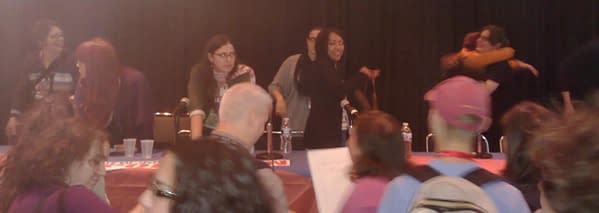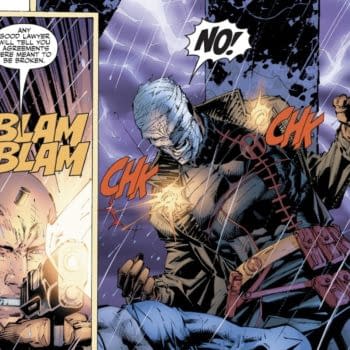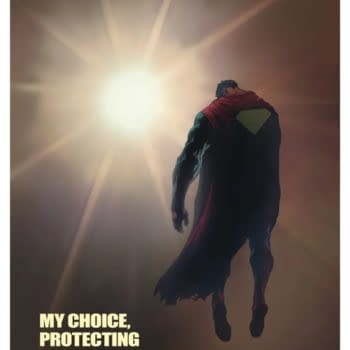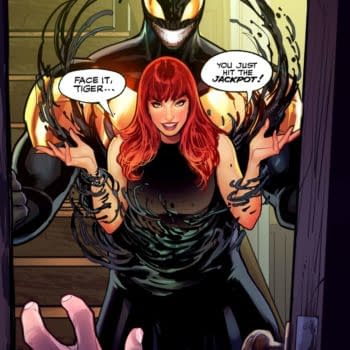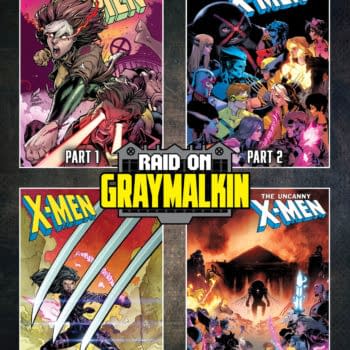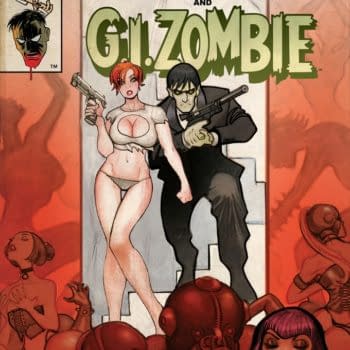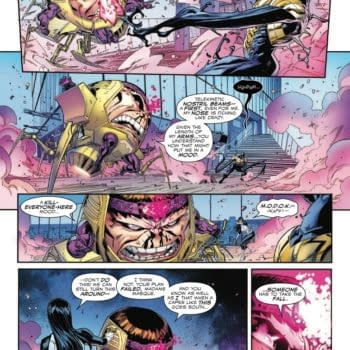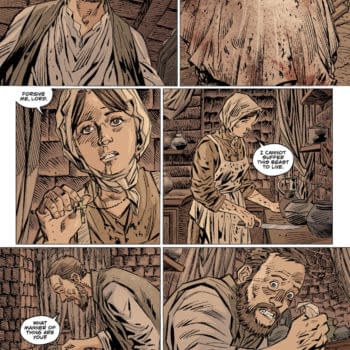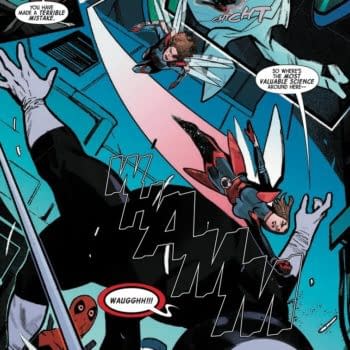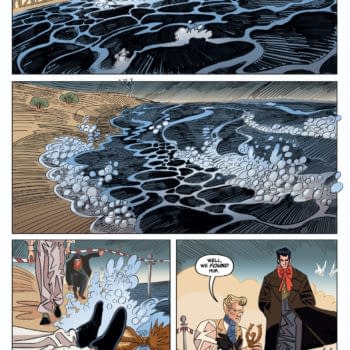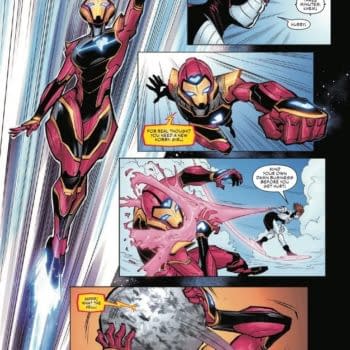Posted in: Comics | Tagged: Comics, marvel, new york comic con, NYCC, women
Recovering From A Hangover With The Women Of Marvel
It was Sunday morning. The previous night's combination of free schnappes at the MTV Geek Party, Marvel's big bash and extensive round binding etiquette at Angophile Pub Of Choice took its toll on many last night.
I'm not sure who was the worst off, the audience or some of the Women Of Marvel panellists (save for the teetotalers), but it did mean that it was way too early for bullshit. The panellists talked openly and frankly about the proplems and potential for female comic book creators and characters, in light of a increased industry attention to the matter.
Kelly Sue DeConnick was the most outspoken – and probabky the funniest the. She rejected the idea that there was any anti-female conspiracy in the industry, there was no "Don't give Kelly Sue a job, she's a chick, she's going to write it with her vagina" but she defined the problem by effect more than intent. That there is a glass ceiling, an invisible barrier that prevents female creators rising to to the top within the corporate industry – that there are only two A-list writers in the last decade or so, and both have been dismissed by some as crazy. And there have been no A-list female artists. She pointed out that as a short woman, she has plenty of power fantasies to exercise in the genre. She also believed that being married to Matt Fraction, "the prettiest girl in the dance" was a far greater concern when pitching a comic, than her gender.
Colleen Coover expressed the belief that the lack of diversity in superhero comic books caused the lack of female creators, in that women were more drawn to write and draw horror or romantic superhero works, but there was a definite negative reaction to that from the crowd. Previously, DeConnick had asked women in the crowd to stand up if they wanted to write superhero comics, with around thirty doing so, to prove both an audience and a creator base that could be taken advantage of. And from their reaction, they rather seemed to like superhero comics not far from where they are now.
An art historian wanted to ask about how they deal with the issue of the "male gaze", especially the editors on the panel, considering that many of the comics published fits into that category. This caused unease amongst the panellists – while clarifying that this did not refer to all superhero comics, they knew there was a problem but not how to deal with it. The answers were apologetic in parts, citing deadlines of commercial comics with DeConnick revealing that there was one book she wrote that had the art come back with a very offputting panel. So she and her editor decided to put a word balloon over the woman's bottom. It got a laugh, but but the issue received little resolution. It's the kind of question that deserves to get asked again.
Sara Pichelli revealed that at very beginning of her career, the very first compliment she received was from an Italian writer, "she's good, she draws like a male. I never thought being a women is a big deal, maybe males have this problem, I've never felt it."
DeConnick's commonly observed reaction from publishers is along the lines of "You're a lady, you can write ladies, and yes, I like ladies, I just like my ladies to have swords and big fists. She cited being asked to write Osborn as being a major moment for here, in the kind of work she is now approached for. "You want to do some dudes in prison? Yes!"
Moderator Jeanine Schaefer suggested an out of context hashtag for that last one.
Marjorie Lui believes that many women are equally obsessed with superheroes. And that the barrier is not so much gender, but a desire to be in comics, in that it is seen as a boys club. Sana Amanat agreed regarding much of the comics industry as being like a "grade school over again… that fanboy mentality"
But this can be a motivating factor for some. DeConnick semi-jokingly revealed that she is "motivated by spite" – and that one tweet telling women to get out of comics, as it's a male thing, will keep her working for years.
Concluding, there was a sense that the panellists do realise the problems, for themselves and others, but are working to change that at Marvel, and everywhere else. And that the situation is getting better, and as it does so, so things with change exponentially. Marjorie Liu reminded everyone that "things don't change until something makes a lot of money". And success of female-positive work will only breed more.
And one day a panel such as Women Of Marvel won't even be necessary…


